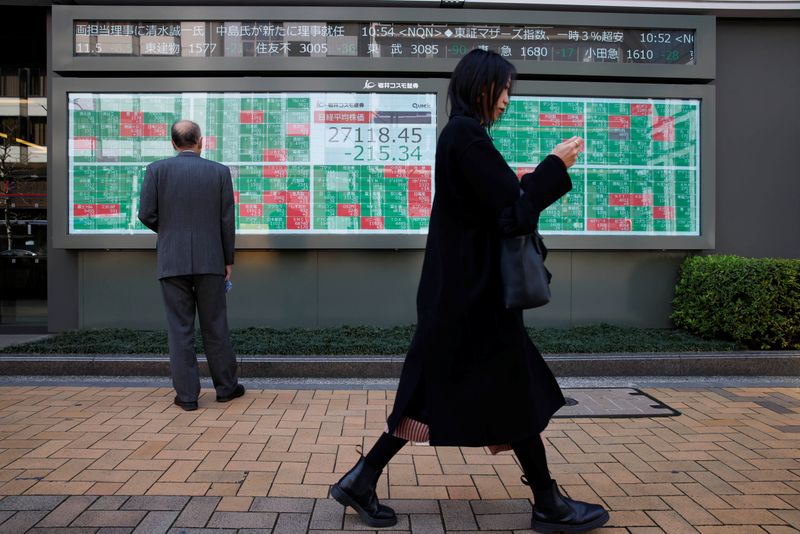By Jamie McGeever
(Reuters) - A look at the day ahead in Asian markets from Jamie McGeever, financial markets columnist.
A clutch of top-tier Chinese economic data, second-quarter growth figures from Indonesia and the Philippines, and an Indian interest rate decision are the main events in Asia this week, with markets highly sensitive to rising global bond yields.
The Nasdaq, S&P 500 and MSCI World index last week all registered their biggest weekly losses since March, and the MSCI Asia ex-Japan index's 2.3% fall was its biggest in six weeks.
Driving the deterioration in risk appetite is the surge in global bond yields, especially U.S. market-based borrowing costs as the long end of the Treasury curve came under intense selling pressure.
The U.S. yield curve steepened by 20-30 basis points last week - the biggest steepening since March - and the steepening of the 2-year/30-year yield curve by 30 basis points was one of the biggest weekly moves in over a decade.
Perhaps counterintuitively, from a stock market perspective at least, this is partly due to the resilience of the U.S. economy. The 'soft landing' or even 'no landing' narrative is gathering momentum, and JP Morgan on Friday became the latest Wall Street bank to remove or delay their U.S. recession call.
U.S. fiscal worries are also growing, however, and the Bank of Japan's recent 'yield curve control' surprise has lifted Japanese bond yields. All else equal, financial conditions are tightening, and despite a strong U.S. earnings season scorecard, stocks are feeling the squeeze.
Asia's corporate earnings season picks up this week, with Alibaba (NYSE:BABA) the standout in a trickle from China, and Sony (NYSE:SONY) and Softbank (OTC:SFTBY) among a flood of big names from Japan.
Several potential market-moving data releases and events in Asia are also due, as well U.S. consumer price inflation for July. Economists polled by Reuters expect the annual rate to rise to 3.3% from 3.0%.
On the economic front, the main focus will be Chinese trade, lending, producer price and consumer inflation data. Investors will be hoping for signs that deflationary pressures and weakness in import and export activity this year are finally abating.
If not, the pressure on Beijing to inject substantial stimulus into the economy will only intensify. On its own, cutting banks' reserve requirement ratios will not be enough.
The Reserve Bank of India, meanwhile, is expected to keep its benchmark repo rate on hold at 6.50% on Thursday and hold it there through March 2024.
Monday's calendar in Asia is fairly light, with Indonesian Q2 GDP and Thai inflation for July the main releases. Indonesia's economy is expected to have grown 3.72% in Q2, rebounding from a 0.92% contraction in Q1, but slow slightly on an annual basis.
Here are key developments that could provide more direction to markets on Monday:
- Indonesia GDP (Q2)
- Thailand CPI inflation (July)
- China FX reserves (July)
(By Jamie McGeever; Editing by Diane Craft)
